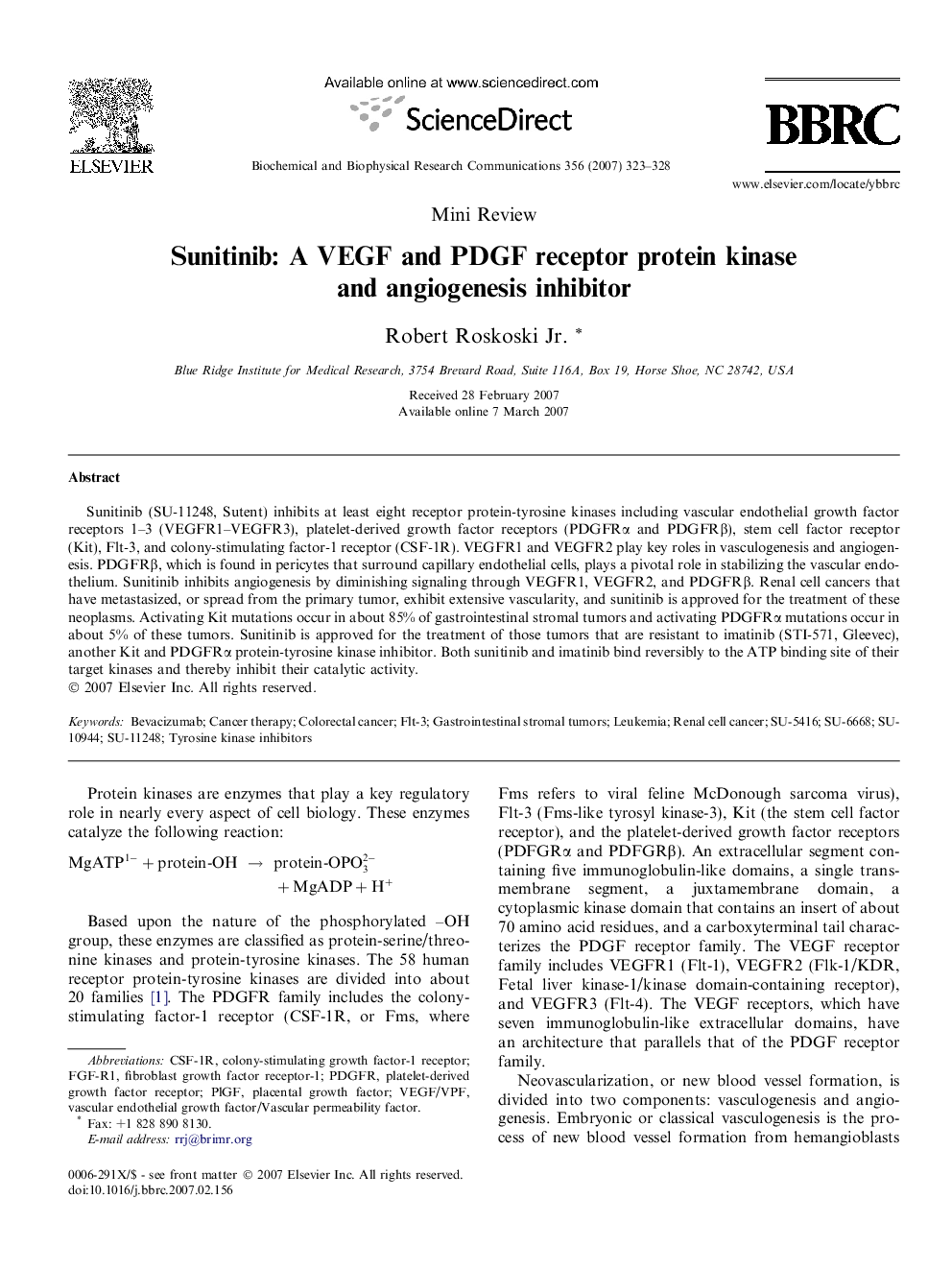| کد مقاله | کد نشریه | سال انتشار | مقاله انگلیسی | نسخه تمام متن |
|---|---|---|---|---|
| 1938579 | 1050743 | 2007 | 6 صفحه PDF | دانلود رایگان |

Sunitinib (SU-11248, Sutent) inhibits at least eight receptor protein-tyrosine kinases including vascular endothelial growth factor receptors 1–3 (VEGFR1–VEGFR3), platelet-derived growth factor receptors (PDGFRα and PDGFRβ), stem cell factor receptor (Kit), Flt-3, and colony-stimulating factor-1 receptor (CSF-1R). VEGFR1 and VEGFR2 play key roles in vasculogenesis and angiogenesis. PDGFRβ, which is found in pericytes that surround capillary endothelial cells, plays a pivotal role in stabilizing the vascular endothelium. Sunitinib inhibits angiogenesis by diminishing signaling through VEGFR1, VEGFR2, and PDGFRβ. Renal cell cancers that have metastasized, or spread from the primary tumor, exhibit extensive vascularity, and sunitinib is approved for the treatment of these neoplasms. Activating Kit mutations occur in about 85% of gastrointestinal stromal tumors and activating PDGFRα mutations occur in about 5% of these tumors. Sunitinib is approved for the treatment of those tumors that are resistant to imatinib (STI-571, Gleevec), another Kit and PDGFRα protein-tyrosine kinase inhibitor. Both sunitinib and imatinib bind reversibly to the ATP binding site of their target kinases and thereby inhibit their catalytic activity.
Journal: Biochemical and Biophysical Research Communications - Volume 356, Issue 2, 4 May 2007, Pages 323–328